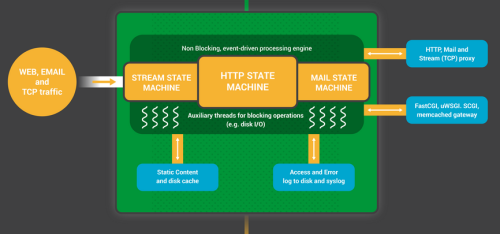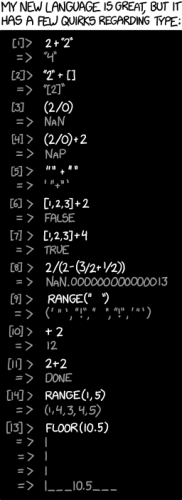Inside NGINX: How We Designed for Performance & Scale
Category: Technology
I work in technology sector. And I do round a clock, not only from 9 to 5. It is my bread and butter, it is my hobby, it is the fascination of my life. And with the current rate of change particular in information technology (IT), there is always something new to learn, to try, to talk about. I often post news, thoughts, and reviews. And when I do, this is the category I use.
How Complex Systems Fail
How Complex Systems Fail – a very concise, yet complete paper on how complex systems fail. It’s not system or industry specific. Here are just the bullet points:
- Complex systems are intrinsically hazardous systems.
- Complex systems are heavily and successfully defended against failure.
- Catastrophe requires multiple failures – single point failures are not enough…
- Complex systems contain changing mixtures of failures latent within them.
- Complex systems run in degraded mode.
- Catastrophe is always just around the corner.
- Post-accident attribution accident to a ‘root cause’ is fundamentally wrong.
- Hindsight biases post-accident assessments of human performance.
- Human operators have dual roles: as producers & as defenders against failure.
- All practitioner actions are gambles.
- Actions at the sharp end resolve all ambiguity.
- Human practitioners are the adaptable element of complex systems.
- Human expertise in complex systems is constantly changing.
- Change introduces new forms of failure.
- Views of ’cause’ limit the effectiveness of defenses against future events.
- Safety is a characteristic of systems and not of their components.
- People continuously create safety.
- Failure free operations require experience with failure.
Types
RT initialdata and Perl’s nested map
Request Tracker (aka RT) comes with a very powerful, yet not too widely known tool – initialdata. This helps with automating configuration of the new system and data migration. Combined with the power of Perl’s map() function, some really awesome things can be done in a jiffy.
Here is a snippet I’ve used recently, to set a list of access rights to a list of queues:
push @ACL, map {
my $queue = $_;
map {
{
GroupDomain => 'SystemInternal',
GroupType => 'Everyone',
Queue => $queue,
Right => $_,
}
} qw(
CreateTicket
ReplyToTicket
)
} qw(
dpt-Support-EN
dpt-Support-RU
dpt-Support-FR
);
PHP7 Reference
PHP7 Reference – An overview of the features, changes, and backward compatibility breakages in PHP 7
Unarguably the greatest part about PHP 7 is the incredible performance boosts it provides to applications. This is a result of refactoring the Zend Engine to use more compact data structures and less heap allocations/deallocations.
The performance gains on real world applications will vary, though many applications seem to recieve a ~100% performance boost – with lower memory consumption too!
The refactored codebase provides further opportunities for future optimisations as well (such as JIT compilation). So it looks like future PHP versions will continue to see performance enhancements too.

